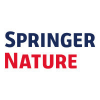Postdoc Position - Karlsruhe, Deutschland - Springer Nature
Beschreibung
Postdoc position (w/m/d) in the field of control of integrated energy systems:
- Employer
- Helmholtz Association of German Research Centres
- Location
- Karlsruhe
- Closing date
- 31 Mar 2024
- Discipline
Job Type
Postdoctoral
Employment - Hours
Full time
Duration
Fixed term
Qualification
PhD
Sector
Academia- You need to sign in or create an account to a job.
- Job Details
- Company
Job Details:
Area of research:
Scientific / postdoctoral posts
Starting date:
Job description:
You play a central role in the international team of the "Networked Multi-Energy Systems" research group and actively shape the energy transition.
Your main activities:
- Free and projectbased research on physics, data, and learningbased methods for sectorcoupled energy systems with partners from academia and practice (e.g., in the field of modeling of sectorcoupled energy systems (electricity, gas, district heating), scalable control and stability analysis of energy systems using dissipativity theory, merging market mechanisms and technical operation into optimal, technoeconomic operation strategies)
- Professional support for PhD students and joint publications in relevant, highranking journals
- Acquisition of research funds (publicly funded, industry, etc.)
- Participation in the researchoriented teaching of the institute
- Future possibility to take over the research group lead
- This research center is part of the Helmholtz Association of German Research Centers. With more than 42,000 employees and an annual budget of over € 5 billion, the Helmholtz Association is Germany's largest scientific organisation._
Company:
The Helmholtz Association contributes to solving major challenges to assure the future of our society.
With more than 39,000 people on staff in 18 national research centres, the Helmholtz Association is Germany's largest scientific organization.
The name Helmholtz stands for concerted research in which networks form the key principle behind inquiring thought and action. Concerted research is efficient and flexible.The profile of the Helmholtz Association
The Helmholtz Association performs cutting-edge research which contributes substantially to solving the grand challenges of science, society and industry.
To succeed in meeting these responsibilities, Helmholtz concentrates its work in six research fields:
Energy, Earth and Environment, Health, Key Technologies, Matter, as well as Aeronautics, Space and Transport. Within each of these fields, research programs are developed by our scientists and regularly evaluated by renowned international experts. Their evaluation forms the basis for the programme-oriented funding that is allocated to Helmholtz research.
Within the six research fields, Helmholtz scientists cooperate with each other and with external partners - working across disciplinary, organizational and national borders.
Promoting young academics
Helmholtz scientists, a high-performance infrastructure and modern and efficient research management are the ingredients to the Helmholtz Association's success and global impact.
Its strategy begins with targeted recruitment of highly qualified staff at all levels, followed by comprehensive support aimed at further developing their potential.
Ensuring equal opportunities is an essential element in all talent management activities undertaken by the Helmholtz Association.The Helmholtz Graduate Schools and
Research Schools at almost all Helmholtz Centres provide doctoral students with the general and specific skills and training they need, as well as ample opportunity to network with other working groups. The period following a doctorate is decisive in determining the direction and success of a scientific career. For this reason, we are about to establish Career Centers for postdoctoral researchers in the Helmholtz centres and a mentoring programme for especially gifted PostDocs in order to foster career orientation. This equips young researchers with the skills they need to go on to head a
Helmholtz Young Investigators Group, for example. As a Young Investigator Group leader, junior scientists can independently set up their own group to conduct research in their specialist field.
Within its talent management strategy, the Helmholtz Association pays special attention to the increased recruitment of talented female scientists both from Germany and abroad.
To this end, there are currently two funding programs supporting this policy
'Funding of first-time appointments of excellent women scientists (W2/W3)'
and 'Funding to recruit top-level international women scientists (W3)'**.
Mehr Jobs von Springer Nature
-
Research Associate
Karlsruhe, Deutschland - vor 4 Tagen
-
Computational Postdoc
Heidelberg, Deutschland - vor 3 Wochen
-
Fully Funded Phd Positions
Frankfurt am Main, Deutschland - vor 4 Tagen
-
Auszubildende r Zum/zur Fachinformatiker in
Darmstadt, Deutschland - vor 2 Wochen
-
Head of Course and Conference Office
Heidelberg, Deutschland - vor 16 Stunden
-
Postdoc Position in The Field of Climate Change
Geesthacht, Deutschland - vor 2 Wochen

